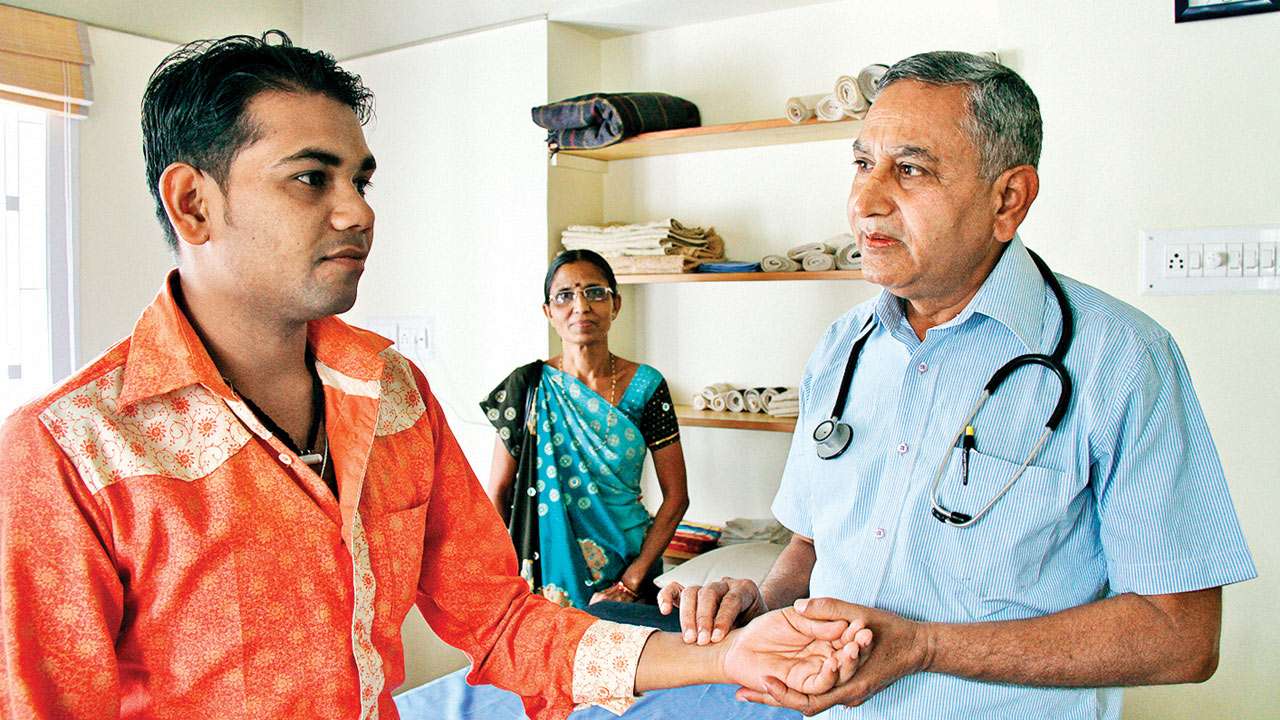
Maqsood, my Pakistani Uber driver the other day caught me by surprise with his enthusiasm for India. Given recent elections and change of governments in Pakistan, he was particularly keen to learn what is happening to healthcare in India, especially with the new scheme, Ayushman Bharat or the National Health Protection Scheme (AB-NHPS), being rolled out for its citizens.
Indeed, if you have a chat even with a stakeholder in Indian healthcare today, the conversation will inevitably touch upon AB-NHPS, India’s new national health insurance (or, as some point out, assurance) scheme. National and international press are already discussing it, with CNN pointing out that it’s a greater than $700 billion scheme in India’s $2.4 trillion economy. A recent Lancet editorial additionally noted that perhaps also for the first time, the Prime Minister’s Office is getting involved, directly thinking about health of Indians going forward with AB-NHPS. Indeed, insurance is an irreversible direction for health in India, as a Mckinsey study predicted a decade ago. Yet, while the timing for AB-NHPS may just be about right, scratching beneath the surface reveals several concerns that stakeholders are also pointing out.
First, prices and package rates under AB-NHPS scheme seem to be a constant tussle between private providers and the Centre. Can a caesarean indeed be done in Rs 9,000, just a little more than $120? How will AB-NHPS regulate prices of other procedures, like hip implants or total knee replacements in lifestyle surgeries? Will that impact quality of healthcare and outcomes? Is the GoI going to retrospectively track these effects and update their version zero of AB-NHPS prices? How will one empanel hospitals in the private space if they stay away from AB-NHPS? And for those who are empanelled but are facing challenges in reimbursements, how will they play around with their patient mix, task shifting strategy and length of stay for patients along with follow-up and outcomes, such that it affects not just their own profitability and productivity but ultimately also industry evolution and competition in India’s hospital markets? Answers to these questions assume first order importance.
The second issue remains the question of funding and financing AB-NHPS. Shall it come through a national health tax? And even if financing is arranged, how will GoI deal with the issue of medical arms race and the healthcare quadrilemma? Pointed out from a seminal work by Northwestern economist Burton Weisbrod earlier, this is a situation in which medical technologies diffuse faster once insurance supports the financing of healthcare, but it is a double-edged sword for there can also be inefficient diffusion and adverse health outcomes coming from inappropriate care and insurance fraud.
A third issue may come from whether there is adverse selection happening. Adverse selection could be tested, if in the data generated, one observes that higher-risk people are enrolling more in AB-NHPS and they may be draining the plan by over-usage of services offered. In an ideal world, the regulator would like to move away the scheme from adverse to favorable selection, but that would also mean willingness to create data capture and predictive systems, using technology enabled comprehensive and harmonised national health data stacks that could offer evidence on whether the policy is working or not. So far, uptake of universal healthcare coverage (UHC) in India, whether nationally or state-wise, has been disappointing.
A subsequent question is the issue that AB-NHPs doesn’t still deal head-on with the matter of health being a state subject in India, while many health policy decisions are being made at the Centre in Delhi. While for the moment, fortunately, almost all states have agreed to sign on to AB-NHPS. UHC in India itself has not just a long national history starting with the CGHS scheme for central government employees (and later the RSBY scheme), but also a provincial history, where political incentives have spurred leaders to promote state-level health insurance schemes. How will AB-NHPS harmonise itself in the population of all these schemes, and what might it do to provide incentives and ultimately care and health outcomes, remains a question that is still up in the air.
A final behavioral issue may arise if AB-NHPS is automatically assumed to be the manna from heaven to solve India’s healthcare challenges, this without attending to other structural devils lurking in the backyard, be that raising healthcare expenditure as a percent of GDP, fixing India’s primary healthcare conundrum, skilling human capital or using technology in Indian healthcare to attend to its doctor/nurse shortages, or solving regional heterogeneity to avail, access and afford healthcare.
Ultimately, the success of AB-NHPS beyond the optics will hinge on carefully paying attention to these above operationalisation factors. Researchers can certainly help GoI if data systems are created for evaluation and monitoring, thereby recommending changes to the scheme that may be required to make sure that AB-NHPS is indeed generating better health for the Indian citizen. The causal and robust evidence on this link (HI and health) in the West has actually been mixed, as research from Jay Bhattacharya, Katherine Baicker, Neeraj Sood and Amy Finkelstein among others have shown in the US. One can only be optimistic that AB-NHPS could provide evidence to the contrary and also offer a benchmark for financing healthcare in other South Asian nations, as my friend Maqsood from Pakistan seemed keen to learn about.
The author (https://www.hoover.org/profiles/chirantan-chatterjee) is a faculty member at IIM Ahmedabad, where he holds the ICICI Bank Chair in Strategic Management. He is a 2018-2019 recipient of the W. Glenn Campbell and Rita Ricardo Campbell National Fellow award at the Hoover Institution, Stanford University.